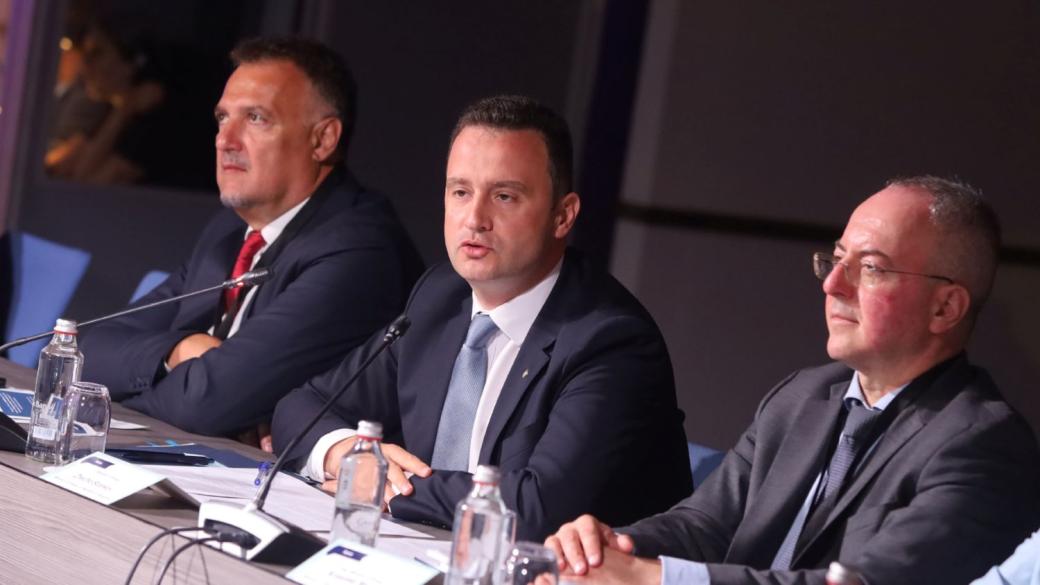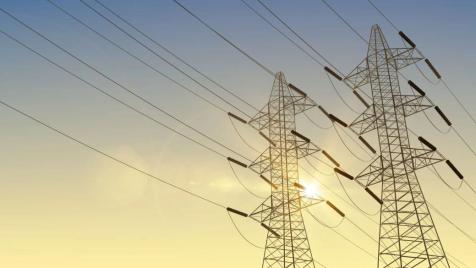“Great potential”: Bulgaria resumes exploration of rare earth materials
Our country is the only one in Europe without its own geological service and systematic geological surveys

© ECONOMIC.BG / Krassimir Svrakov
Rare earth materials are gaining popularity amid the trade war between the US and China, as well as sanctions against Russia and the war in Ukraine. Europe faces the challenge of developing its own deposits so as not to be so dependent on external factors.
Bulgaria cannot remain indifferent and fail to provide opportunities for the search and exploration of such elements. This was stated by Energy Minister Zhecho Stankov during a conference in Sofia, where he invited Bulgarian and foreign investors to undertake such exploration activities.
I cannot but express the state's support for the development of the search for and exploration of rare earth elements. Bulgaria has created a comfortable and sustainable environment for such research through the Underground Resources Act,” Stankov said.
As Economic.bg wrote, rare earth elements are part of the group of so-called critical raw materials. They are “critical” because of their high demand in renewable energy production and their limited supply. Rare earth elements are not called rare because they are scarce, but because they rarely form their own minerals.
They are important for a number of industries, such as aircraft manufacturing, military technology, and mobile phones.
They are particularly indispensable in the production of green energy—for the magnets in wind turbine blades, solar panels, and batteries for electric vehicles," explained Assoc. Prof. Svetoslav Georgiev, director of the Geological Institute at the Bulgarian Academy of Sciences, to Economic.bg some time ago.
Thousands of old studies
Thousands of old studies
Stankov said that his department has a National Geological Fund with studies on rare minerals from the last 100 years.
We have thousands of cores (samples) from boreholes across the country that have not been fully explored for rare earth elements, and we see great potential there,” said the minister.
He pledged that the ministry would speed up the processing of applications for rare earth element exploration.
However, these studies are outdated.
Bulgaria once had its own National Geological Service, which was privatized in 2003–2004. This made the country the only one in Europe without such a service, which led to a lag in knowledge about what can be found on our land.
We are the only country in Europe that does not have such a service. This has been the case for the last 30 years, during which we have had little control over resources, no systematic geological surveys, and no contact with the public," said Dr. Georgiev from the Bulgarian Academy of Sciences during the conference.
He explained that renewable energy requires 10 times more materials than conventional energy. For example, electric cars need 8 times more materials than conventional cars. At the same time, China dominates the extraction and processing of critical materials, accounting for 70% of global extraction and 86% of processing.
New prospects
According to Dr. Georgiev, based on reports, “a long time ago” in the Maritsa basin, where lignite is mined for our coal-fired power plants, there was preliminary information that such elements exist, but “this needs to be further investigated and with economic initiative.”
As for Mini Maritsa East, clay and earth are also mined there, but at a depth of 70 meters before reaching the coal seams.
“There is no way that these seams do not contain other underground riches that we can tap into,” the minister was adamant.
However, when asked by journalists about enrichment facilities for the samples, Stankov clarified that the process there is longer.
It turns out that metal minerals usually leave Bulgaria and even Europe because the chemical method used to extract them is often not permitted on the Old Continent. Therefore, the minerals have to be enriched in Africa and then returned to Europe.
For now, the prospects for the Maritsa basin are linked to coal mining. On the other hand, if rare earth elements are found, they could offer “future prospects for the complex.”
The first land
Bulgaria not only has a long tradition, but was actually the first land to have such rare metals at the time," Valentin Nikolov, CEO of Bulgarian Energy Holding (BEH), told the media.
He recalled that the oldest gold in the world was discovered in Bulgaria, which is also home to one of the oldest copper mines.
Nikolov acknowledged that Minproekt EAD, part of BEH, has projects dating back to the 1970s and 1980s, which were classified by the State Security Service at the time, for the development of such metals in our Maritsa East Mines.
He pointed out that six elements, including germanium and lithium, had been discovered, but drilling must continue “to see the concentration and potential.”
"There are huge benefits—the world is different, there is a marathon, and the countries that have technology and rare earth materials are running the fastest. We know that we have these elements here, and I think this will give Bulgaria a big boost in its development," added the head of BEH.
New state-owned company
In a statement to the media, the energy minister said that negotiations are underway for BEH to become part of the exploration and search for oil and gas in the deep Black Sea.
Thus, together with OMV Petrom and Israel's NewMed Energy, the state will have the opportunity to participate in the exploration and “rebuild Bulgaria's capacity.”
The idea is to create a unit or directorate, and subsequently a “company such as the National Geological Fund,” with which to regain the capacity we had over the years. To bring together young, educated people with experience scattered around the world," said Stankov.
The idea is for the company, with its experts, to assist in the process of granting permits for exploration and research of rare earth metals.
Light at the end of the tunnel
However, the director of the Geological Institute at the Bulgarian Academy of Sciences announced that a five-year National Scientific Program for Critical Raw Materials will start this year, bringing together 14 universities and scientific organizations.
Its budget is BGN 8.5 million and it has a total of seven packages, including for rare earth deposits, Bulgaria's potential for energy resources in the green transition, environmental effects, social and economic effects, and others.
The program will finance research activities of strategic importance for the country.
The aim of the program is to explore Bulgaria's potential for sustainable extraction, processing, and reuse of critical and strategic materials," Georgiev said.
This text was translated by DeepL translator.

 Simona Gotsova
Simona Gotsova 


